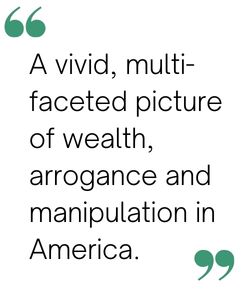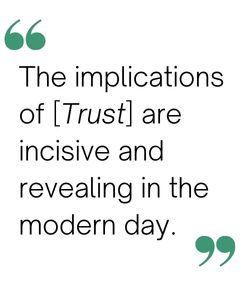Trust
In a worthy follow-up to his outstanding debut, In the Distance, Pulitzer Prize Finalist Hernan Diaz presents a story that begins with the accumulation of extraordinary wealth and ends with an illusion of power. A monumental piece of storytelling told in four overlapping sections, Trust (Riverhead Books) defies conventional narrative form, providing different, often conflicting, perspectives on the wealthiest fictional family of the roaring ’20s. The result is a clever puzzle that readers piece together chapter by chapter.
The novel’s first section introduces us to Benjamin Rask, heir to a large and thriving tobacco business, who changes course drastically to invest his family’s money in American financial institutions. Enthralled by the way money behaves like a living thing — growing, dividing, multiplying — he becomes entrenched in the developing New York Stock Exchange. When, by chance, Rask’s fortune increases exponentially, he awakens a hunger and passion for financial matters that consumes his life. The most interesting and entertaining portions of Rask’s story come when the stone-cold businessman encounters a love interest in immigrant Helen Brevoort. Finding that their peculiar mannerisms and proclivities align well, they embark on a life together.
 As Rask’s story draws to a rather shocking conclusion, the novel’s second section introduces us to another wealthy entrepreneur, Andrew Bevel. Here, the narrative shifts to the first-person, becoming a fictional autobiography, which Diaz executes so well that readers may forget they are reading a novel. Bevel recounts his own story of tremendous financial success, using his near preternatural ability to predict the outcome of the stock market and fulfilling the American dream of prosperity. In this story we experience the inherent bias of an autobiographical account: Bevel portrays himself as strictly benevolent, using his wealth to bless and sustain the lives of others. Frequently commenting on the merits of capitalism he notes, “Profit and common good are but two sides of the same coin.”
As Rask’s story draws to a rather shocking conclusion, the novel’s second section introduces us to another wealthy entrepreneur, Andrew Bevel. Here, the narrative shifts to the first-person, becoming a fictional autobiography, which Diaz executes so well that readers may forget they are reading a novel. Bevel recounts his own story of tremendous financial success, using his near preternatural ability to predict the outcome of the stock market and fulfilling the American dream of prosperity. In this story we experience the inherent bias of an autobiographical account: Bevel portrays himself as strictly benevolent, using his wealth to bless and sustain the lives of others. Frequently commenting on the merits of capitalism he notes, “Profit and common good are but two sides of the same coin.”
Bevel creates and presides over a generous household with his wife, Mildred, using their prosperity to benefit the nation. Mildred is an impassioned benefactor to numerous musicians and artists. She becomes increasingly important through the rest of the book, but her role in the family’s success is largely downplayed and belittled in this section. Diaz adds a touch of intrigue to the story as we learn that Mildred meets a nearly identical fate to that of Helen Rask.
The third section of the book contains an important reminder, and points to one of the central themes of the book: “Money is a fiction … You can’t eat or wear money, but it represents all the food and clothes in the world.”
This portion of the novel reveals answers to many of the incongruities that arise in earlier scenes. A new character, Ida Partenza, recounts the details of her work as ghostwriter for Andrew Bevel as he attempted to correct what he felt was a public bias against him. Ida transcribes the recollections of the aging tycoon and we discover, through her account, many of the questionable details of Bevel’s conduct and the foundations of his empire. Bevel is guarded in what he reveals to Ida and maintains absolute control over the words that make it to the page, but many inconsistencies arise. She suspects that his wife, Mildred, may have had a greater role in their success than Bevel has ever publicly admitted. Ida’s life and humble circumstances shortly after the Great Depression are a stark contrast to the extravagance depicted in earlier portions of Trust.
 In the novel’s final section, we are allowed access to the secret journals of Mildred Bevel, uncovered by Ida. Very little can be said about this section without revealing too much. Recorded throughout Mildred’s life, including her stay in a Swiss sanatorium, these passages reveal a truth behind Andrew Bevel’s vast empire that is drastically different from the glossy veneer known to the public.
In the novel’s final section, we are allowed access to the secret journals of Mildred Bevel, uncovered by Ida. Very little can be said about this section without revealing too much. Recorded throughout Mildred’s life, including her stay in a Swiss sanatorium, these passages reveal a truth behind Andrew Bevel’s vast empire that is drastically different from the glossy veneer known to the public.
Trust is most notable for combining drastically different narrative styles and perspectives in a manner that intrigues the reader and contributes to the overall theme of the novel. Hernan Diaz tells this story through third-person dramatic exposition, an incomplete autobiography, notes from a ghostwriter, and fragmented, poetic journal entries. These four overlapping sections create a vivid, multi-faceted picture of wealth, arrogance and manipulation in America. While the majority of the story takes place in the ’20s and ’30s, the implications of this novel are incisive and revealing in the modern day. Ultimately, Trust encourages readers to consider the meaning of money, the foundations of power and to question the foundations of our trusted institutions and public figures.




